 Our Council
Our Council
Executive Council
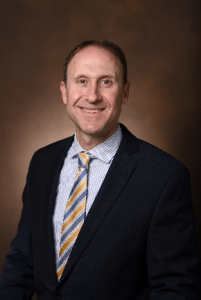
Eric Austin, MD, MSc
Vanderbilt University Medical Center
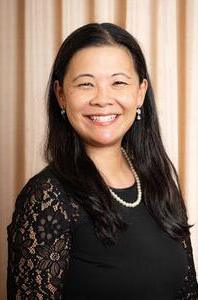
Joyce R. Javier, MD, MPH, MS
Kaiser Permanente Bernard J. Tyson School of Medicine
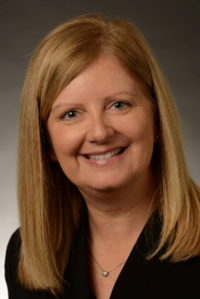
Brenda Poindexter, MD, MS
Emory University School of Medicine
Children’s Healthcare of Atlanta
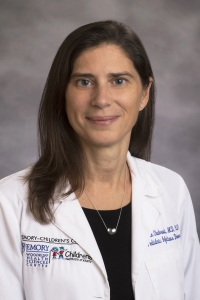
Ann Chahroudi, MD, PhD
Emory University School of Medicine
Children’s Healthcare of Atlanta
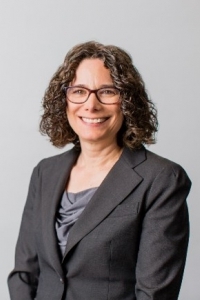
Roberta Keller, MD
University of California San Francisco
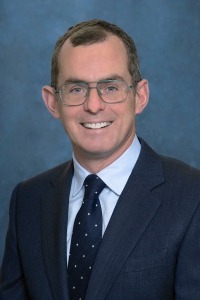
David McCulley, MD
UC San Diego School of Medicine
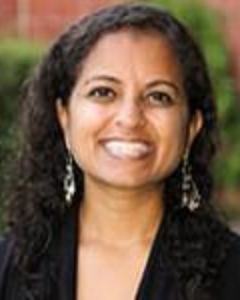
Ashwini Lakshmanan, MD, MS, MPH, FAAP
Kaiser Permanente Bernard J. Tyson School of Medicine
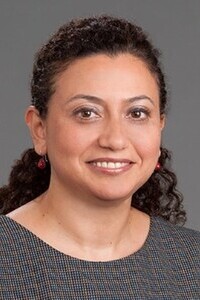
Semsa Gogcu, MD, MPH
Warren Alpert Medical School of Brown University
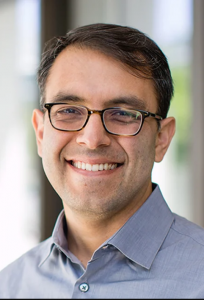
Fernando F. Gonzalez, MD
University of California, San Francisco
Council
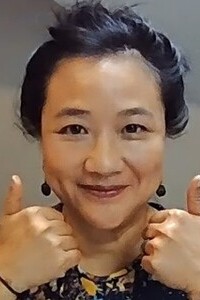
Alyna T. Chien, MD MS
Boston Children’s Hospital
Harvard Medical School

Jacqueline Ho, MD, MSc
University of Pittsburgh Medical Center (UPMC)
Children’s Hospital of Pittsburgh
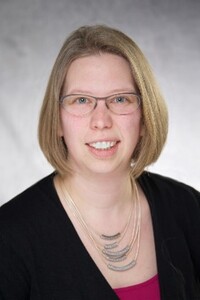
Janice Staber, MD
University of Iowa Stead Family Children’s Hospital
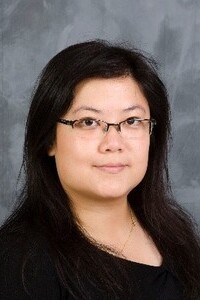
Emily Tam, MDCM, MAS, FRCPC
Hospital for Sick Children
University of Toronto
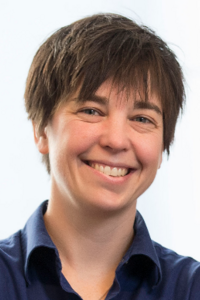
Sara Van Driest, MD, PhD
National Institutes of Health
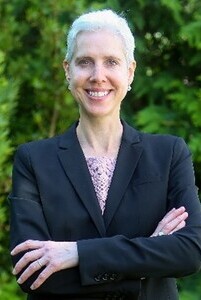
Miriam Vos, MD, MSPH, FAASLD
Emory University and Children’s Healthcare of Atlanta
 Emerging to Established (E2E) Section
Emerging to Established (E2E) Section
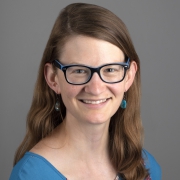
Lillian Juttukonda, MD, PhD
Boston Children’s Hospital

Kelly Orgel, MD, PhD
University of North Carolina at Chapel Hill
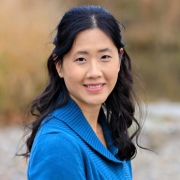
Jingshing Wu, MD
University of Wisconsin
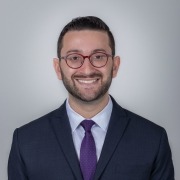
Jonathan A. Berken, MD, PhD
Children’s Hospital of Philadelphia/Perelman School of Medicine
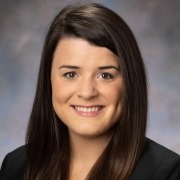
Chelsea Bitler, DO, MS
UPMC Children’s Hospital of Pittsburgh

Paige Condit, MD
University of Wisconsin School of Medicine and Public Health

Nisha Dalvie, MD
Harvard Medical School, Boston Children’s Hospital

Paula Dias Maia, MD
University of Iowa

Jeremy Sandgren, MD, PhD
University of Iowa
 Our Bylaws | Policies
Our Bylaws | Policies
Current Bylaws
The Society for Pediatric Research was founded in 1929 and incorporated in 1963. The provisions of these Bylaws (the “Bylaws”) are amended and expanded from those as amended and approved by the Society in 2019.
Current Policies
Membership Policies
Officer and Council Policies
Other Policies
 Our Committees | Workgroups
Our Committees | Workgroups
Advocacy Committee
Mandate:
- Provide leadership in child health advocacy through government and public forums for issues related to the SPR Mission.
Co-Chairs:
Joyce Javier, MD, MPH, MS
Ashwini Lakshmanan, MD, MS, MPH
CHSOR Network
Scope: The goal of the CHSOR Network is to identify and meet the needs of child population health researchers within SPR.
Chair: Alyna T. Chien, MD, MS
Finance Committee
Mandate:
- To ensure SPR possesses the financial resources to sustain its mission statement; SPR operates with sound stewardship of its resources; partners with the Pediatric Research Foundation to grow the financial resources with which to execute its missions.
Chair:
Todd Florin, MD, MSCE
Justice Equity Diversity Inclusion Committee
Objective:
- To enhance the diversity of SPR membership.
Lead:
Semsa Gogcu, MD
PAS Content Workgroup
Objectives:
- Identify and select sessions for the PAS Meeting that represent the best science and are of interest to the membership.
- Identify a topic through the membership survey of value to members, and proactively invite a group of scientists to submit symposium and/or workshop proposals on this topic.
Lead:
 Frequently Asked Questions
Frequently Asked Questions
General Society Questions
About SPR
What is the SPR mission?
To cultivate a diverse network of child health researchers through collaboration, community, mentorship, and advocacy.
How is the SPR mission translated into action?
- We provide and promote activities that strengthen the pediatric research community, with a strong focus on supporting the pediatric physician-scientist pipeline.
- We specifically provide:
- programming for the PAS meeting.
- career opportunities (mentoring, advocacy, editorial writing).
- advocacy on medical system issues that affect our members’ ability to do research (funding, credentialing, regulations).
- We provide a community for students and professionals actively engaged in pediatric research.
Relationships to Other Organizations
How is SPR related to APS?
- SPR and the American Pediatric Society (APS) are two distinct, selective academic societies with related missions.
- SPR is specifically focused on creating and supporting a network of multidisciplinary researchers in child health, while APS engages distinguished leaders in pediatrics to shape the future of the field more broadly.
- The two societies share administrative functions in their Central Office in The Woodlands, TX.
How is SPR related to the regional SPRs (Eastern, Mid-West, Southern, Western)?
- The regional SPRs are not formally part of SPR and have separate administration, membership and meetings.
- SPR works closely with the leadership of each regional SPR to promote our common goals, enhance our meetings and events, and encourage regional members to apply for SPR membership.
- Efforts to enhance these relationships are a current focus for SPR.
How is SPR related to AAP?
- The American Academy of Pediatrics is a large pediatric organization whose mission is to attain optimal physical and mental health for children across the United States.
- Its membership includes academic and private pediatricians and other professionals and providers. Its activities focus on promoting optimal clinical care, providing pediatric education to its members and the public, and doing research to inform national pediatric priorities, practice and policy.
- SPR works collaboratively with AAP on multiple projects relevant to our membership, particularly on advocacy issues.
How is SPR related to the ABP?
- The American Board of Pediatrics is one of the 24 certifying boards of the American Board of Medical Specialties. The ABP is the certifying organization for pediatrics and pediatric subspecialties, and certification provides assurance to the public that a general pediatrician or pediatric subspecialist has successfully completed accredited training and fulfilled continuous evaluation requirements.
- The ABP selects a member of SPR to serve on their Board of Directors.
How is SPR related to FOPO?
- The Federation of Pediatric Organizations (FOPO) is an umbrella organization made up of the leadership of the AAP, ABP, APS, SPR, the American Pediatric Association (APA, an organization of academic general pediatricians), the Association of Medical School Pediatric Department Chairs (AMSPDC) and the Association of Pediatric Program Directors (APPD).
- FOPO aims to promote pediatric health by providing a forum in which the member organizations can discuss issues in pediatric health and the practice of pediatrics and build relationships to accomplish shared goals.
- The winner of the Joseph W. St. Geme, Leadership Award, presented to a role model of pediatric leadership each year at PAS, is selected by the member organizations at the winter FOPO meeting.
How is SPR related to IPRF?
- SPR is a partner in the International Pediatric Research Foundation, a non-profit organization that oversees the management of our journal, Pediatric Research.
- IPRF has 8 board members 2 from SPR, 2 from APS and 4 from the European Society for Pediatric Research.
- Starting in 2016, IPRF distributes a portion of the profits from the journal to each member society.
How is SPR related to Pediatric Research?
- Pediatric Research is the official publication of SPR, APS, and the European SPR. A subscription to the journal is a benefit of active membership in SPR.
- SPR encourages its members to publish in Pediatric Research. The journal publishes perspectives from SPR, as well as original papers, invited reviews, and commentaries on pediatric research topics.
- Pediatric Research invites SPR members to engage in the review process.
- To enhance the journal’s connection to the three societies’ missions, Pediatric Research is developing programs to engage early-stage investigators the editorial process and putting in place a reward system for reviewers.
Relationship to PAS
What is the role of SPR at PAS?
- SPR is one of the societies that participates in the annual Pediatric Academic Societies meeting.
- SPR helps make PAS the leading event for academic pediatrics and child health research.
- SPR helps to choose scientific content for the meeting by selecting specific topics for presentation and by selecting members to serve on the PAS Program Committee.
- SPR offers members important opportunities at the PAS Meeting including a Presidential Scientific Plenary session designed specifically for members and featuring outstanding scientific talks, a complimentary SPR awards luncheon, and special science showcase and reception that highlights leading talent from each SPR Regional society.
How are SPR-sponsored PAS symposium or workshops chosen?
- SPR-sponsored symposia and workshops are chosen from submitted proposals by the SPR Content Committee.
- Members of the SPR Content Committee may work together to develop proposals.
How do I get appointed to the PAS Program Committee?
- SPR representatives on the PAS Program Committee include the SPR President, President-elect, Strategy & Operations Officer, Strategy & Operations Officer- elect (in transition years) and other SPR members recommended by the SPR Council who have needed content expertise (e.g. neonatal neurology, cardiology).
How do I get selected to review abstracts or moderate PAS sessions?
- As an SPR member, you will receive an email each summer asking you to volunteer to serve as an abstract reviewer, session moderator and/or poster facilitator. Please sign up!
- The PAS Program Committee will make assignments in their areas of expertise. Current members can be found here.
SPR Membership
Why should I join SPR?
- Being a member of SPR is a recognized honor in academic pediatrics, requiring nomination by academic peers and leaders and recognition of one’s role as an independent, productive child health researcher.
- As a diverse, innovative group of people, SPR actively promotes the development of physician-scientists, honors outstanding achievements through several awards programs, advocates for child health research and gives its members representation in other national organizations and in Washington, DC.
- Opportunities to serve as abstract reviewer, session moderator or discussant at PAS Meeting.
- Propose concepts for scientific sessions, workshops and special interest groups at PAS Meeting.
- Serve on SPR Council, committees and work groups and vote in SPR elections.
- Encourage fellows to apply for membership in the SPR Junior Section.
- Subscription to Pediatric Research, the SPR journal.
- Access to online membership directory and web-based tools.
What are the categories of SPR membership?
Visit the SPR Membership page for information.
How many members does SPR have?
- As of 2022, there are over 4400 SPR members.
Who makes decisions about membership applications?
- The Director of Membership does a preliminary review of all applications and assigns two Council Members to provide a full review of each file. At Fall Council (Oct/Nov), nominations are presented and voted on.
- Detailed discussions generally focus on nominations where there is disagreement about eligibility, concern about independence or research program leadership or unusual career circumstances.
- Decisions by the Council are considered final.
How does SPR address diversity in pediatric research?
- SPR values diversity and inclusion within the SPR membership and in pediatric research. There is strong evidence that diversity improves outcomes, so initiatives promoting diversity and inclusion enhance pediatric research as a whole.
- SPR seeks to increase diversity and inclusion through research, training awards, and active mentoring of young investigators.
- SPR members are active in researching how child health is affected by disparities in race, ethnicity, socioeconomic status.
Why should SPR Emerging to Established (E2E) membership be encouraged?
- The goal of the SPR Emerging to Established (E2E) Section is to promote networking and the development of child health researcher to maintain the physician-scientist pipeline for the future of pediatric health.
- The E2E Section activities focus on career transitions from trainee to faculty, professional networking, recognition through awards and travel grants, mentorship programs and advocacy training.
- These opportunities are provided free of charge and applications are accepted on a rolling basis.
- The E2E Section is led by a Chair and a Chair-elect who are currently in fellowship. Together, they work with the SPR leadership to manage and enhance the E2E Section.
- The call for Chair-elect applications occurs each July.
What does SPR do with the dues that I pay?
- The SPR uses its income to support initiatives that fit its mission focused on research in pediatrics. These include SPR webinars, support for the Emerging to Established (E2E) Section of the SPR, and support for a variety of research awards, such as the Bridging to Success Award.
- The SPR also contributes to advocacy groups and participates in advocacy activities focused on research including membership with the Pediatric Policy Council (PPC).
- Recently, the SPR has set aside money to enhance our ability to help our membership communicate and network with a goal of delivering information and tools to make a career in pediatric research easier.
Why do I need to pay both SPR and APS dues if I belong to both groups?
- Although SPR and APS have a close working relationship with frequent collaborations, they are separate organizations with distinct missions. They maintain separate finances, and they use their resources to fund independent initiatives.
- SPR is focused on research and careers in child health research, while APS is focused on leadership in academic pediatrics.
How do I get the most out of my membership at PAS? Between PAS meetings?
- At PAS meeting:
- Submit scholarly sessions and abstracts to PAS.
- Attend the SPR Presidential Scientific Plenary and Awards, SPR-sponsored Invited Science Sessions and SPR-sponsored Workshops designed to meet the needs of SPR members based on survey results.
- Network at SPR events.
- Nominate a researcher for an award and cheer when they win (or win an award yourself!) see our awards.
- Participate by moderating a session or facilitating discussion (remember to volunteer when you get that email invitation from PAS!).
- Take advantage of discounted registration for new members.
- Between PAS meetings:
- Attend PAS and SPR webinars.
- Stay tuned with the SPR website and other social media (Facebook and Twitter).
- Get involved by joining a workgroup or committee; see current groups.
- Read the SPR Pulse to see recent highlights and activities related to SPR on our news page.
- Read our journal and contribute to Pediatric Research, SPR’s official journal.
Participation in SPR
How do I join a SPR committee or working group?
- SPR Committees are long-term groups focused on broad SPR missions. SPR Workgroups are temporary groups formed to specifically address an active issue in a targeted, time-limited manner.
- Information on current committees and groups is found here: http://www.societyforpediatricresearch.org/about/#committees
- Awards Committee volunteers are requested in June/July each year. A diverse group of members with relevant expertise is selected by the Executive Council to serve.
- Each committee has a Chair and Co-Chair, one of whom is typically also a Council member so that there is clear communication with SPR Chairs and Co-chairs are selected by the Council. Volunteers are welcome and should contact the current Chair of the group or the SPR Central Office.
- Committees and workgroups strive to have Active and Emerging to Established (E2E) Members participate.
- There are a limited number of positions on each committee, and Chairs are expected to appoint a diverse membership from those who volunteer, while balancing expertise and sub-specialty representation.
- Most committees and working groups have conference calls every 1 -2 months and may meet in person annually at PAS.
What is SPR Council and how do I join?
- The SPR Council is responsible for managing and administering the affairs of SPR. These responsibilities include but are not limited to reviewing membership applications, serving on and leading workgroups and committees, reviewing finances, developing and maintaining relationships with other national organizations, with NIH and with political representatives.
- Two full Council meetings are held annually: Fall Council (late Oct/early Nov) and Spring Council (late April/early May on the Friday preceding the annual PAS meeting). Additional phone meetings are held throughout the year.
- Non-officer members of the Council are elected by Active Members to staggered three-year terms.
- Requests for Council nominees are sent out yearly. Given the 3-year staggered terms, only some areas of representation are eligible in any given year.
- Nominees are reviewed by the SPR Nominating Committee. The Nominating Committee reaches out to potential nominees needed in specific areas and review and volunteer. The goal of the committee is to provide nominees that will produce a balanced Council with representation from pediatric subspecialties (reflecting our membership), geographic regions, gender and racial identities, and types of research (basic, clinical, translational).
- The slate of nominees is presented to SPR Council. Once approved, final nominees are notified.
- Active Members vote for nominees via email ballot.
- Elected Council Members start their positions at the next Spring Council meeting.
What are the SPR Officer positions that comprise the SPR Executive Council?
- The SPR officers are President, President-elect, Vice President, immediate Past-President, Director of Strategic Operations (formerly called Secretary-Treasurer), Ambassador, North American Regionals, Director of Membership (formerly called Membership Secretary), various Lead positions (Education & Scientific Programs, Pediatric Scientist Development, Advocacy, Diversity & Inclusion, Partner Relations and SPR Perspectives), and Directors-elect of Strategic Operations and Membership in the years these positions are transitioning.
- Nominees for officer positions are reviewed by the Nominating Committee. Previous service on SPR Council is not required, but evidence of active engagement with SPR is highly encouraged. Nominees must be in good-standing with SPR.
- A Vice-President is elected on a yearly basis. This position starts the four-year sequence of presidential leadership.
- Directors of Strategic Operation and of Membership are elected for four and five-year terms respectively. These officers provide continuity on SPR Council for many years and a one-year training period is provided when a new Director is elected.
- Officer positions are significant volunteer time commitments that provide leadership experience, close interaction with other mid-career physician-scientist leaders across pediatric specialties, and national opportunities for program building and advocacy.
If I have suggestions or more questions, whom do I contact?
Contact or Suggestions Information
Members may share ideas with SPR leadership via staff in the central office (info@societyforpediatricresearch.org or call 346.980.9710) or contact individuals on the SPR Executive Council.
Membership Structure Changes-May 2019
Senior Members
What changed?
The Senior Member category was eliminated as of May 1, 2019. All Senior Members in good standing as of October 1, 2018, were transitioned to Active Member status and hold Active Member privileges. Members who transitioned from Senior to Active Member status under this policy had no change in dues during this transition.
Why did you change this membership category?
This change responds to member requests to better reflect the diversity of career paths of our membership and to enable mid- and late-career members to remain engaged by acting as leaders and mentors within the society, nominating new members, and voting in elections.
I’m a Senior Member. What will happen to my membership and dues?
SPR Senior Members in good standing as of October 1, 2018 will automatically be transitioned to Active Member. There will be no change in dues for Senior Members during this transition.
I am a Senior Member. Will my benefits change in any way?
Yes! Individuals transitioning from Senior to Active Member status will have the benefits afforded to Active Members, including:
- May nominate or second a nomination of any new member or awardee.
- May vote in any duly called SPR election.
- Consistent with SPR policies regarding Officer and Council positions, may serve as duly elected Officer or Council member.
- Receive all SPR communications to members.
- May participate in all duly announced SPR member events.
- May participate in SPR Committees or similar groups, as approved by Council.
- Senior Members transitioned to Active Member status may, for an additional fee, subscribe to society’s journal, Pediatric Research.
I am a Senior Member. What will happen to my dues?
Dues for SPR Senior Members transitioned to Active Member status under this plan will remain unchanged during this transition.
I am an Active Member and I just turned 55. What will happen to my dues?
SPR Active Members, regardless of age, will continue to be assessed dues of the Active Membership category.
I belong to APS and SPR. Do I need to pay dues to both societies?
Yes, dues for APS and SPR are separate.
I would prefer a different policy. What can I do?
Policy changes are approved by a vote of SPR Council. We encourage Active Members to communicate with Council, to vote in the Council elections, and/or request nomination for Council.
Affiliate Members
What changed?
The Affiliate Member category was eliminated as of May 1, 2019. All Affiliate Members have the opportunity to apply for automatic transition to Active Member status by December 31, 2020. Affiliate Members who transition to Active Member status will be assessed Active Member dues.
Why did you change this membership category?
This change was made to simplify the SPR membership structure and in response to reduced need for the Affiliate Member status.
I am an Affiliate Member. What will happen to my dues?
SPR Affiliate Members may request an automatic transition to Active Membership status at any time until December 31, 2020, by contacting info@societyforpediatricresearch.org. Individuals who transition to Active Member status will be assessed Active Member dues.
I am an Affiliate Member but I’m over 55. Will my dues be at the rate of current Senior Members or current Active Members?
Affiliate members who transition to Active Member status will be assessed Active Member dues.
I am an Affiliate Member and I forgot to request Active Member status. What can I do to become an Active Member?
Affiliate Members that request a transition to Active Member status after December 31, 2020, must be nominated via the Call for Applications (open from late May – July each year) and subject to a vote by Council.
Can I wait until the last minute to transition to Active Member to minimize dues?
Yes! We understand that the increase in dues may be prohibitive for some and so are giving time for members to budget for the increase.
I am an SPR Affiliate Member by virtue of my EuroSPR Membership. If I change to Active Member status, do I need to pay dues to both organizations and subscribe to the journal twice?
Dues for EuroSPR and SPR are separate. SPR dues invoices will include the required fee to subscribe to the journal, Pediatric Research.
Emeritus Members
What changed?
The age determination for Emeritus Members is eliminated. SPR Active Members may transition to Emeritus Member status by notifying SPR that they have retired. SPR Active Members may also request Emeritus status due to other circumstances, subject to approval by SPR Council on a case-by-case basis.
Why did you change this membership category?
This change was made to reflect the diversity of career paths of our membership and to encourage late career members who are still actively engaged in pediatric research to remain engaged by acting as mentors within the society and nominating new members.
I am an Emeritus Member but I am not yet retired. What will happen to my membership status?
Current Emeritus Members who are not yet retired may choose to remain Emeritus or transition back to Active Member status and be assessed dues at the Active Member level.
I am a Senior Member and was supposed to transition to Emeritus this year due to turning 65. What happens to my status and dues?
Transition to Emeritus status is no longer required at age 65. All Senior Members in good standing as of October 1, 2018, will be transitioned to Active Member status. Dues will remain unchanged during this transition. Upon retirement, any Active Member may request transition to Emeritus status.
I was looking forward to Emeritus Member status when I turn 65, but I’m not planning on retiring until I’m 70. What can I do?
Council will accept special requests for transition to Emeritus Member status, and, subject to approval by Council, may make exceptions to Emeritus status requirements on a case-by-case basis.
Emerging to Established (E2E) Members
What changed?
The Emerging to Established (E2E) Member eligibility has been expanded to six years following completion of fellowship.
Why did you update this membership category?
This change aims to ensure that there is no gap in SPR engagement between Emerging to Established (E2E) Member status and reaching Active Member status. Faculty who demonstrate a recent track record of independent, hypothesis driven work that was initiated after fellowship or other training period can be nominated for Active Membership during the annual Call for Membership Nominations as soon as they meet eligibility criteria.
What are the dues for Emerging to Established (E2E) Members?
Emerging to Established (E2E) Members are not assessed dues.
When should I transition from Emerging to Established (E2E) to Active Member?
Faculty who demonstrate a recent track record of independent, hypothesis driven work that was initiated after fellowship or other training period can be nominated for Active Membership during the annual Call for Membership Nominations as soon as they meet eligibility criteria.
Why should I transition from Emerging to Established (E2E) to Active Member?
There are many benefits afforded to Active Members including:
- May nominate or second a nomination of any new member or awardee.
- May vote in any duly called SPR election.
- Consistent with SPR policies regarding Officer and Council positions, may serve as duly elected Officer or Council Member.
- Receive all SPR communications to members.
- May participate in all duly announced SPR member events.
- May participate on SPR Committees or similar groups, as approved by Council.
- Subscription to the society journal, Pediatric Research, with additional SPR member privileges as determined by the journal.
General Change Questions
I would prefer different policies. What can I do?
Policy changes are approved by a vote of SPR Council. We encourage Active Members to communicate with Council, to vote in Council elections, and/or express interest in nomination for Council.
Why were there age criteria anyway?
The age criteria can be traced to the earliest days of SPR, which was originally established by early career pediatric researchers to provide a more open forum for research presentation, in contrast to societies led by more senior pediatric researchers who held only closed research meetings. The maximum age for Active Member status was increased previously, first from 45 to 50 years and then to 55 years, reflecting the increasing length of time required to become an independent physician-scientist.
Polling of SPR members and Council reveal differing views on age requirement criteria. Advantages cited are having an organization that represents early- to mid-stage pediatric researchers who are actively “in the trenches” and maintaining a leadership council that reflects this career stage. Disadvantages cited are the loss of participation of senior research leaders eager to continue engagement and the arbitrary nature of age limits.
Will SPR remain a society focused on early academic careers in pediatric research?
Yes! SPR is committed to fostering the careers of pediatric researchers, especially those at the early- and mid-career stages.
 SPR Events General Yearly Calendar
SPR Events General Yearly Calendar
General Calendar (may vary slightly by year)
General calendar for yearly SPR events (may vary slightly by year):
| PAS Meeting | late April/early May |
| Council Candidate Nominations Due | July/Aug |
| Election for Emerging to Established (E2E) Section Leadership | July |
| Call for Volunteer for Committees, Workgroups | July |
| Call for Membership Nominations | June/July |
| Call for Awards Nominations | Sept/Oct |
| SPR Annual Dues Due | Jan 30 |
| Call for Physician-Scientist Bridging Award Applications | Dec/Jan |
| Election for Council and Executive Members | Jan/March |

 Our
Our  Our
Our  Our
Our